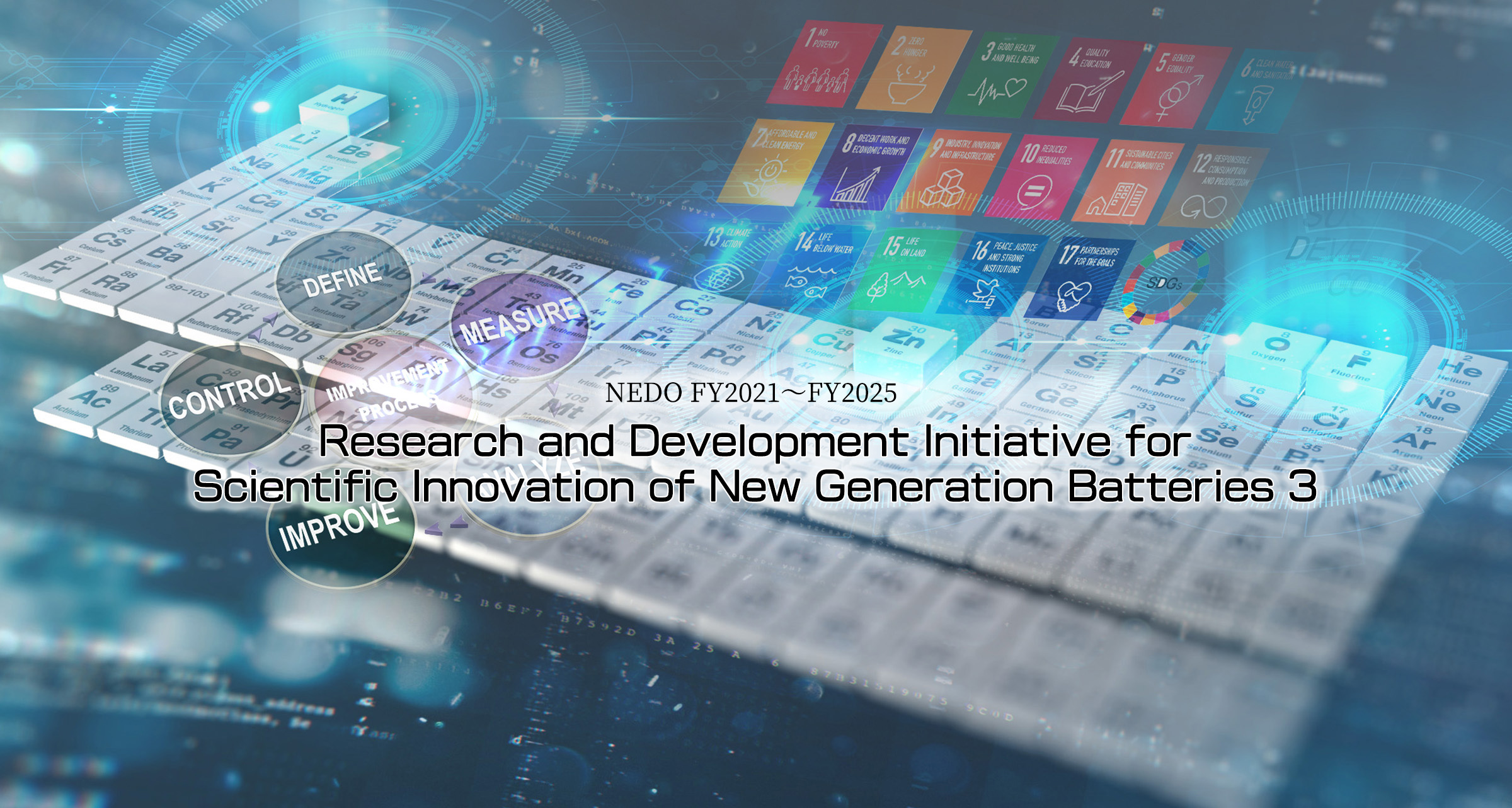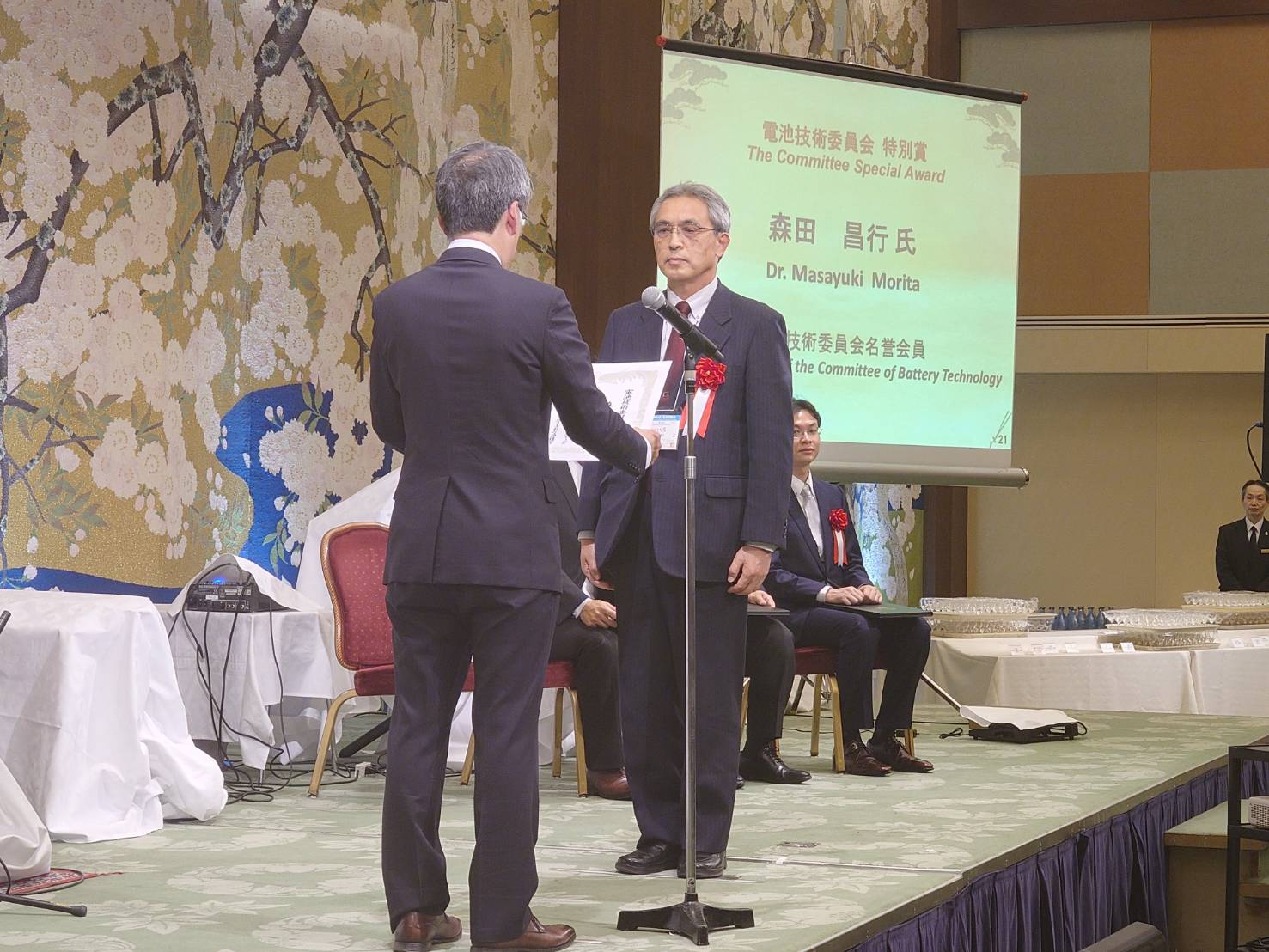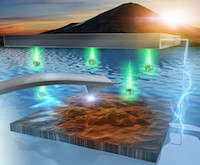
Overview
Development of breakthrough technologies to realize innovative rechargeable batteries for electric vehicles
Reduction targets for CO2 emissions have been set worldwide to prevent global warming. Electrifying automobiles is considered to be an efficient way to reduce CO2 emissions. Some automakers have already announced that they have plans to sell annually several millions of electric vehicles (EVs) and plug-in hybrid electric vehicles (PHEVs) by the end of the 2020s. However, the batteries used in current EVs and PHEVs are inadequate in terms of convenience (e.g., cruising range and charging time), and they have high manufacturing costs, which hinder widespread use of EVs. Thus, there is a strong demand to improve the battery performance by increasing the energy density and reduce the product costs of the battery modules. Based on the great success of previous projects (*), we will focus on two types of battery systems in the newly planned project: (1) fluoride batteries, which show great potential in terms of both energy density and safety, and they are based on highly original technologies developed in Japan, and (2) zinc-anode batteries, which offer significant safety advantages and cost benefits. In this context, we have launched a new five-year research and development project starting in FY2021.
* The RISING (2009–2015) and RISING2 (2016–2020) projects commissioned by the New Energy and Industrial Technology Development Organization (NEDO).
This project will perform research and development of fluoride and zinc-anode batteries, which completely differ from conventional lithium-ion batteries, use inexpensive materials with no resource risks, and provide both high energy density and excellent safety. The project aims to maintain or improve the competitiveness of the automobile and battery industries through commercializing these batteries for EVs and PHEVs in the early stage. We will work in collaboration with industry, academia, and government to research and develop a common technological platform that covers from materials development through battery design and prototyping to characterization and analysis. Additionally, NEDO will manage the virtuous cycle of the wisdom of the players within the project, with the aim of creating technological breakthroughs that will lead to practical application of innovative automotive batteries.
Research
Research1
Fluoride Batteries
Development Goals
A 2-Ah-class prototype cell will be fabricated, and the following aspects of the battery performance will be demonstrated.
- Charge/discharge efficiency: 90% or higher
- Specific energy: 500 Wh/kg or higher
- Volumetric energy density: 1000 Wh/L or higher
- Cycle capacity degradation: 10% or lower (after 100 cycles)
- Rate capability in charge: 1C rate or higher
- Safety: no ignition or smoking in the cases of internal short circuit, overcharging, or other problems.
On the basis of the results of prototype cell tests and characteristics examination, the performance and cost of the battery pack will be evaluated. We will finally confirm that the developed battery system satisfies the practical target.


Research2
Zinc-Anode Batteries
Development Goals
A 5-Ah-class prototype cell will be fabricated, and the following battery aspects of the performance will be demonstrated.
- Charge/discharge efficiency: 90% or higher
- Specific energy: 200 Wh/kg or higher
- Volumetric energy density: 500 Wh/L or higher
- Cycle capacity degradation: 10% or lower (after 100 cycles)
- Rate capability in charge: 3C rate or higher
- Safety: no ignition or smoking in the cases of internal short circuit, overcharging, or other problems.
On the basis of the results of the prototype cell tests and characteristics examination, the performance and cost of the battery pack will be evaluated. We will finally confirm that the developed battery system satisfies the practical target.

Publications
Participant Institutions
Kyoto University, Institute of Science Tokyo, Waseda University, Toyota Motor Corporation, Nissan Motor Co., Ltd., Panasonic Energy Co., Ltd., Honda R&D Co., Ltd., Asahi Kasei Corp., Energywith Co., Ltd., NEC Corporation, Osaka University, Osaka Metropolitan University, Kyushu University, The University of Tokyo, Tohoku University, Nagoya University, Nagoya Institute of Technology, University of Hyogo, Mie University, Yamaguchi University, Ritsumeikan University, National Institute of Advanced Industrial Science and Technology(AIST), Inter-University Research High Energy Corporation Accelerator Research Organization(KEK), Japan Fine Ceramics Center
News
- 2023-12-08
- 2023-11-30
- 2022-12-09
- 2022-09-30
- 2022-03-31The website has been launched.



